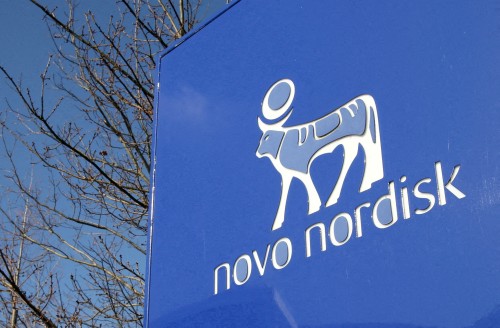By Ludwig Burger and Stine Jacobsen
(Reuters) – Shares of weight-loss drugmakers Novo Nordisk and Eli Lilly rose on Tuesday after U.S. President Joe Biden proposed expanding coverage of anti-obesity drugs under state-run health plans and as a potential rival drug missed expectations in a trial.
Under the proposal, out-of-pocket expenses for the drugs would be reduced for millions of Americans on Medicare and Medicaid, for some by as much as 95%.
“This is an important step forward for patients,” Novo Nordisk said in a statement commenting on the proposal, adding that the coverage could become effective in 2026.
Novo shares pared initial gains of as much as 4.9% to trade 1.5% higher at 1445 GMT. U.S. peer Eli Lilly shares were up over 3%.
Alexander Jenke, a portfolio manager at Medical Strategy in Munich, which manages 1.2 billion euros ($1.3 billion) in assets, said previous trial results on cardiovascular health benefits of Novo’s weekly shot Wegovy had paved the way for the policy change.
“It’s a logical step after a number of trial results that showed a positive effect on co-morbidities beyond just weight loss. But there remains some uncertainty as to how the next administration will deal with this,” said Jenke.
Separately, a would-be challenger in the fast-growing obesity therapy market, Amgen, said its experimental drug MariTide led to an average weight loss of up to 20% in a mid-stage trial with overweight or obese participants.
Amgen’s shares were down nearly 8% ahead of the U.S. market open, as the data fell short of investor expectations.
Medical Strategy’s Jenke said both pieces of news were probably buoying Novo shares and that the prospect of less aggressive rivalry from Amgen also helped Lilly’s stock.
Current rules for the Medicare and Medicaid health insurance programmes cover the use of drugs such as Lilly’s Mounjaro and Novo’s Ozempic and Wegovy for certain conditions like diabetes, but not for obesity as a condition on its own.
The White House said in a statement the proposal could lower out-of-pocket costs for weight-loss drugs by up to 95%, expanding access to millions of Americans.
($1 = 0.9521 euros)
(Reporting by Stine Jacobsen in Copenhagen, Jesus Calero in Gdansk, Ludwig Burger in Frankfurt. Editing by Jason Neely and Mark Potter)





